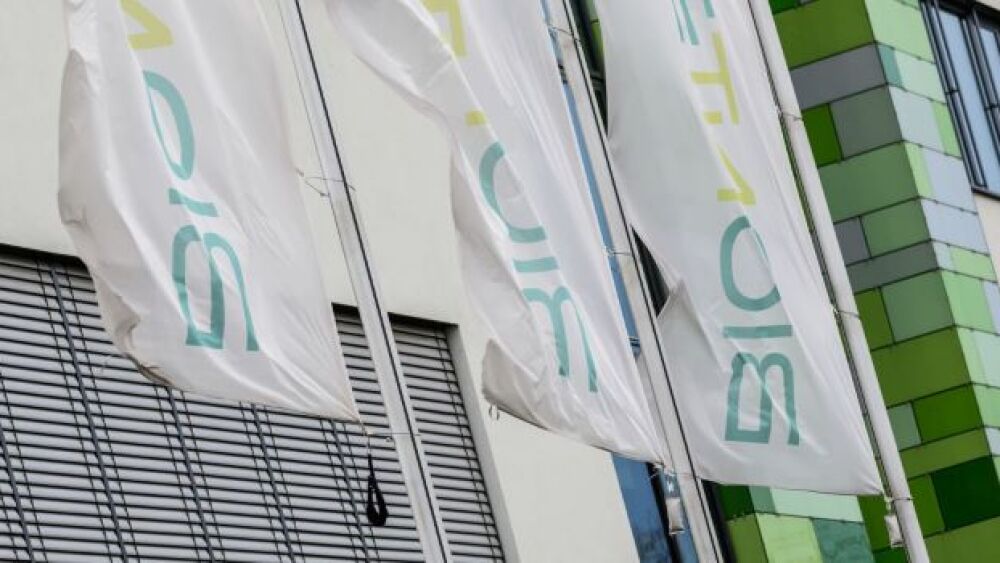The Pfizer-BioNTech mRNA COVID-19 vaccine is reportedly the top vaccine used globally. Here’s a look at today’s highlights.
Andreas Arnold/picture alliance via Getty Images
The Pfizer-BioNTech mRNA COVID-19 vaccine is reportedly the top vaccine used globally. And it seems like daily there are new studies released on its effectiveness in various populations. Here’s a look at today’s highlights.
Booster Doses Efficacy
Pfizer and BioNTech announced topline results from a Phase III trial of a 30-microgram booster shot of their vaccine in more than 10,000 people 16 years of age and older. The booster dose, which was given to patients who had already received the primary two-dose regimen, restored vaccine protection against COVID-19 to levels very similar to what was seen after the second dose. That is to say, it demonstrated a relative vaccine efficacy of 95.6% compared to people who did not receive a booster.
The median period between the second and third dose (or placebo) was about 11 months. Symptomatic COVID-19 cases were measured from at least seven days after the third shot, with a median follow-up of 2.5 months. In that period, there were five cases of COVID-19 in the booster cohort and 109 in the non-booster cohort. The median age of participants was 53 years, with 55.5% between 16 and 55 years, and 23.3% older than 65. The efficacy of the booster shot was consistent regardless of age, sex, race, ethnicity or comorbidities.
“These results provide further evidence of the benefits of boosters as we aim to keep people well-protected against this disease,” said Albert Bourla, Chairman and Chief Executive Officer of Pfizer. “In addition to our efforts to increase global access and uptake among the unvaccinated, we believe boosters have a critical role to play in addressing the ongoing public health threat of this pandemic. We look forward to sharing these data with health authorities and working together to determine how they can be used to support the rollout of booster doses around the world.”
The U.S. Food and Drug Administration and Centers for Disease Control and Prevention (CDC) have authorized the Pfizer-BioNTech booster shots for people who are immunosuppressed, people over the age of 65, people at high risk of severe disease, front-line healthcare workers, and for people between the ages of 18 and 64 who are at increased risk of COVID-19 due to their work or living situation.
Israeli Study: Pfizer-BioNTech Vaccine 93% Effective in Adolescents
A study by researchers from Israel’s Clalit health maintenance organization, Harvard University and Boston Children’s Hospital found that the Pfizer-BioNTech COVID-19 vaccine was 93% effective at halting symptomatic COVID-19 infections. And it was almost as good at stopping the Delta variant entirely.
The study compared 94,354 children between the ages of 12 and 18 who had received the vaccine with the same number of unvaccinated kids in the same age group. The trial was conducted when the Delta variant was the dominant strain in Israel.
“Our result show that the BNT162b2 mRNA vaccine was highly effective in the first few weeks after vaccination against both documented infection and symptomatic COVID-19 with the Delta variant among adolescents between the ages of 12 and 18 years,” the researchers wrote in a letter to the New England Journal of Medicine.
CDC Study: Pfizer-BioNTech Vaccine 93% in 12-18-Year-Olds
With seemingly identical results, the CDC released research from 19 U.S. pediatric hospitals from June through September and found the Pfizer-BioNTech vaccine was 93% effective in preventing hospitalization from COVID-19 in 12- to 18-year-olds. This study followed 464 COVID-19 patients. About 72% of the kids had at least one underlying condition that made them susceptible to severe COVID-19. The study also found that 97% of the kids who ended up in the hospital weren’t vaccinated.
“These data suggest that increasing vaccination coverage among this group could reduce the incidence of severe COVID-19 in the United States,” the researchers wrote in their Morbidity and Mortality Weekly Report.
Of the children who had COVID-19, six were vaccinated, and 173 were unvaccinated. Of that group, 43% required intensive care, 16% of the critically ill patients received life support, and there were two deaths. About 61% of the kids in the study were from the South.
The COVID-19 vaccines have not been authorized for children 5 to 11 yet. The CDC has indicated that 46% of kids 12 to 15 years of age in the U.S. are fully vaccinated, and 54% of 16- to 17-year-olds have been fully vaccinated.





